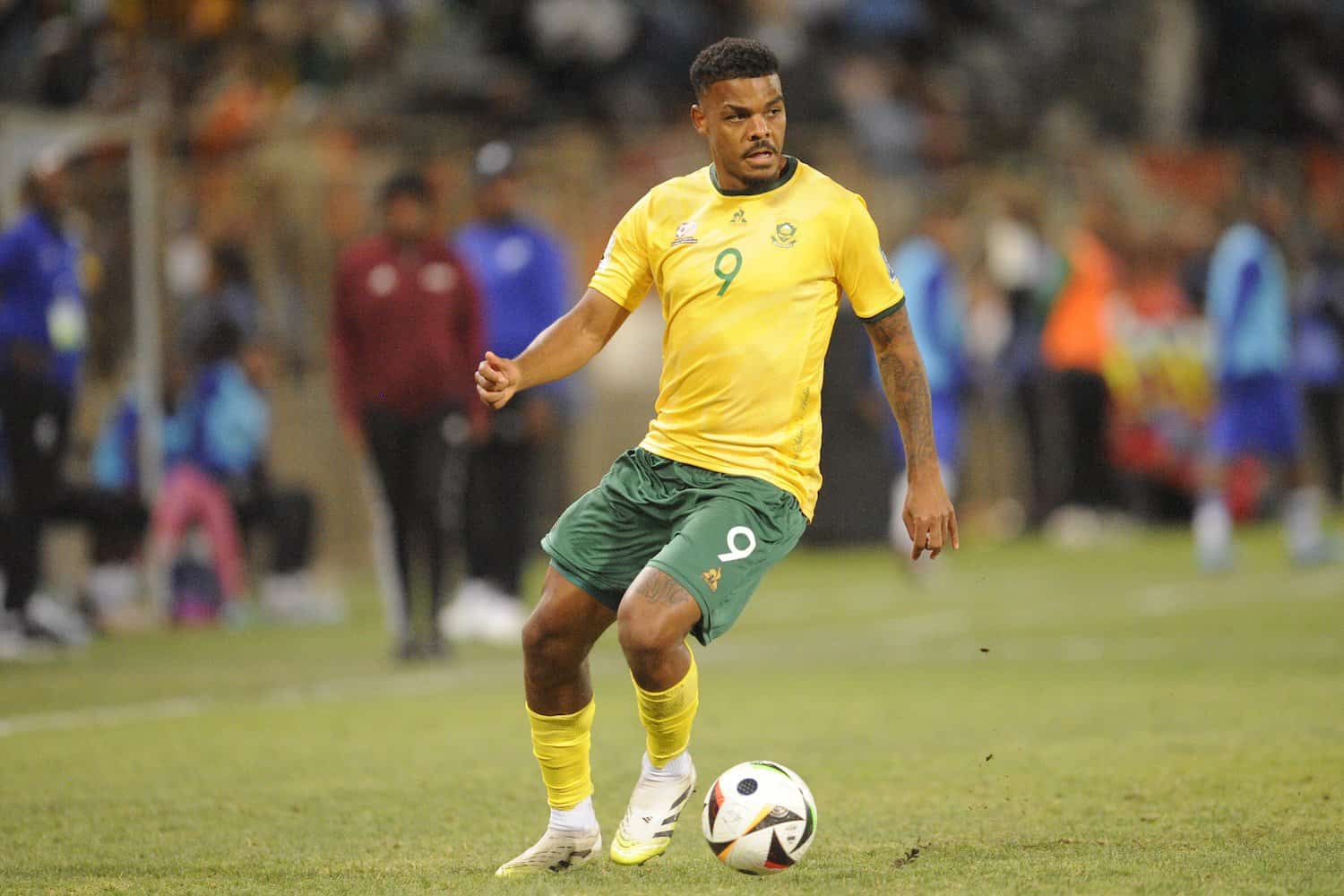Across two tense nights in Bloemfontein, the story of Bafana Bafana’s World Cup Qualifying Campaign shifted from hope to conviction. First came a polished 3-0 win over Lesotho, then a bruising 1-1 draw with Nigeria that demanded resilience as much as craft. The scoreboard only tells part of it. What unfolded at the Free State Stadium felt like a group finding its rhythm, its voice, and its edge at exactly the right time.
Bloemfontein becomes the heartbeat of a campaign
The Free State Stadium has long been a place where South African football can feel close to its fans, and this week it served as both proving ground and launchpad. Hugo Broos spoke about control and focus, and his players responded with performances that mixed patience with punch. The Lesotho match rewarded the assertiveness of a side that has learned to manage moments, while the Nigeria draw showed a team that refuses to blink when the contest turns physical.
Even within the noise, there was clarity. Broos stressed before Nigeria that victory would all but seal progress, and that the pressure sat with the Super Eagles. Lyle Foster echoed the message, saying the pressure was on those trying to catch South Africa, not on the group at the summit of Group C. The words mattered because they matched the football.
Lesotho match shows composure and growing depth
Against Lesotho, an early scare could have rattled Bafana. Nyiko Mobbie left with a head injury after only six minutes, replaced by Zuko Mdunyelwa. Instead of shrinking, South Africa settled, used the ball smartly, and took control of the spaces that mattered.
The opener came with a touch of calm. On 16 minutes Mohau Nkota ghosted into position and guided Aubrey Modiba’s lofted cross past Sekhoane Moerane for his first international goal. It capped a scrappy half littered with fouls, yet Bafana reached the interval deservedly ahead, and their second half carried the conviction that has defined the best of this qualifying run.
Lyle Foster turned a rebound into breathing room after Modiba’s drive was parried, then four minutes later slipped a clever pass for Oswin Appollis to finish low for 3-0. The quick one-two settled the contest and allowed Broos to manage minutes and rhythm, a timely reminder that South Africa can put matches to bed with ruthless efficiency when the platform is right.
The numbers backed up the eye test. South Africa owned 68 percent possession, completed 582 passes to Lesotho’s 270, and carved out more entries in the final third. It was not flamboyant, it was firm control built on quality touches and smart movement, the sort of performance that nurtures belief in a group chasing a place at the 2026 FIFA World Cup.
Nigeria test brings grit and clarity
If the Lesotho night carried serenity, Nigeria demanded steel. Bafana started with crisp passing and menace out wide, and their reward came on 25 minutes. Mohau Nkota burst down the right to fire in a low cross that Nigeria captain William Troost-Ekong turned into his own net under pressure. It was a goal made by tempo and bravery in the wide channel, and it affirmed the attacking balance Broos has been seeking.
Then came the pushback. Nigeria grew into the match, forced set pieces, and grabbed parity just before halftime when Calvin Bassey bundled the ball over the line. Replays suggested the ball came off the defender’s arm, but without VAR the equaliser stood. The second half became a test of nerve and duels, and South Africa’s poise returned when it mattered.
The standout was 19-year-old Mbekezeli Mbokazi, who kept Ademola Lookman quiet and walked away with man of the match. The youngster even flirted with an audacious winner, lifting a chip inches over Stanley Nwabali. Around him, Siyabonga Ngezana’s recall at centre back added authority, while Bathusi Aubaas and Teboho Mokoena fought their corner in midfield and Sipho Mbule stitched together passages of control as the designated playmaker.
The table tightens but destiny remains intact
The 1-1 draw briefly stretched South Africa’s lead, before Benin’s emphatic 4-0 win over Lesotho trimmed the cushion. The updated picture is unmistakably tight. South Africa sit on 17 points after eight matches, with Benin on 14, and both Nigeria and Rwanda on 11. Lesotho have 6, Zimbabwe 4. With two games left, the equation is simple enough. Two positive results will settle it, and even one win could be decisive given the schedule and form lines.
October will decide everything. Bafana travel to Zimbabwe on 6 October, then finish at home against Rwanda a week later. Benin, resurgent with four wins in five, face a tricky run of away dates in Rwanda and Nigeria. The margins are slim, but the balance of control still sits with South Africa, and that is exactly where Broos wanted it to be at this stage.
The Teboho Mokoena cloud and how Bafana manage it
The campaign carries a lingering caveat. FIFA is reviewing the March win over Lesotho in Polokwane, where Teboho Mokoena played despite suspension after two earlier yellow cards. Precedent suggests a possible reversal and a 3-0 award to Lesotho, which would translate into a three point hit. So far, there has been no action, but the possibility remains a shadow over the standings.
Inside the camp, the tone is steady. The message is about separating what can be controlled from what cannot. Win the remaining fixtures, and no deduction can keep Bafana from the finals. It is a simple mantra, sharpened by the week in Bloemfontein, where the team learned to ride momentum on Friday and to ride out pressure on Tuesday.
Voices from the camp
Our focus shifts to the game on Tuesday. It can be very crucial. It is important to try and get the maximum points. I do not think the pressure is on us, I think at the moment where we are in the group is positive. The pressure is on the people trying to get to us.
Our destiny is in our own hands. It is up to us to qualify or not.
Lyle Foster’s words landed because they matched his actions. He pounced for the second goal against Lesotho, then turned provider for Appollis. His leadership has grown with each window, and his line about destiny resonates within a group that now plays like it believes in its path to North America. The striker still framed it with humility, speaking of staying grounded and keeping the pedal down, a reminder that standards remain as important as results.
We survived today and the way we played Nigeria was the right way. It was not such good football but the fighting spirit was there and I am very proud of the team. Now we need one more win and we go to America.
Hugo Broos did not dress it up. Nigeria brought power and urgency, and Bafana met the challenge with grit. His pre match view also set the stakes clearly, saying that if South Africa beat Nigeria, qualification would be all but secured, and that the pressure sat squarely with the Super Eagles. Those lines framed a performance built on collective mettle and game intelligence.
What must happen next in October
Two fixtures remain, and the margins are thin enough to punish any lapse. Yet this is a run-in that suits a side comfortable in managing game states and leaning on a maturing spine. The path is familiar, and the tasks are clear.
- Protect the focus in Zimbabwe, then bring the same intensity home to Rwanda,
- lean on the width that unsettled Nigeria and the passing control that subdued Lesotho,
- keep defensive partnerships settled and disciplined, especially around set pieces.
There is also the management of the bigger picture. Benin have turned their form around, which puts value on quick starts and clean transitions. South Africa’s front line has found speed and understanding through Nkota and Appollis, with Foster providing the touch that turns half chances into goals. The combination gives Broos options to alter the tempo and the threat without losing structure.
Why this team feels different
It is tempting to focus solely on the arithmetic of qualification, but the human story underneath is just as compelling. A teenager in Mbokazi shutting down a star winger and then nearly chipping in a winner speaks to a dressing room that trusts itself. A reshuffled back line absorbing injuries and still holding shape tells of depth and tactical clarity. And a coach sticking to his principles, whether selecting Thabo Moloisane on a Friday or restoring Siyabonga Ngezana on a Tuesday, shows decision making that fits the moment rather than the noise.
There are threads running through the week. Modiba influenced both matches with his delivery and drive, Appollis and Nkota stretched defenses with direct running, and Ronwen Williams kept calm at key times. Even the rough edges, like a heavy pitch and a few feisty duels, seemed to draw the best out of a group that is comfortable in the fight. That blend of control and character is the foundation of a sustainable push.
Key numbers from a pivotal week
- Lesotho 0-3 South Africa, goals by Nkota on 16 minutes, Foster on 63 minutes, and Appollis on 67 minutes,
- possession against Lesotho at 68 percent with 582 completed passes versus 270 for the Crocodiles,
- Nigeria 1-1 South Africa, a Troost Ekong own goal on 25 minutes and a late first half equaliser by Calvin Bassey.
Beyond the scorelines, the tactical story is visible in those markers. South Africa can keep the ball and move opponents around, and they can also compress space and manage a game when it turns scrappy. That duality travels well, and it is a significant reason why this campaign has remained on track.
The Nigeria subplot and the wider context
Heading into the Bloemfontein showdown, Nigeria had a cloud of their own, an injury doubt over Victor Osimhen adding uncertainty to a group that had failed to win their first four qualifiers. That start left them with a mountain to climb. South Africa did not blink. The front four that troubled Lesotho kept asking questions, and the defensive unit absorbed the second half storm. At the whistle, the draw nudged Bafana closer to their target while leaving the Super Eagles with little room to manoeuvre.
For South Africa, the larger context is even clearer now. Topping the group guarantees a return to the world stage for the first time since 2002. Second place offers only a slim route, with just four best runners up across the continent moving to intercontinental playoffs. Control of first place is the prize that matters, and it remains in South African hands.
Final word
Bloemfontein gave Bafana Bafana a week of contrasts that revealed a single truth. This team knows who it is. It can be daring and direct, or stubborn and stingy, and it can switch between those gears without losing identity. That is the signature of a side ready to finish the job.
There is work to do, and pressure to absorb, and perhaps a disciplinary twist still to resolve. Yet the picture is unmistakable. With two matches to play, with belief hardened by a win and a draw, and with a coach and striker singing from the same hymn sheet, South Africa carry both the initiative and the imagination that define real contenders. The stage now shifts to October, and the opportunity to turn control into history.





